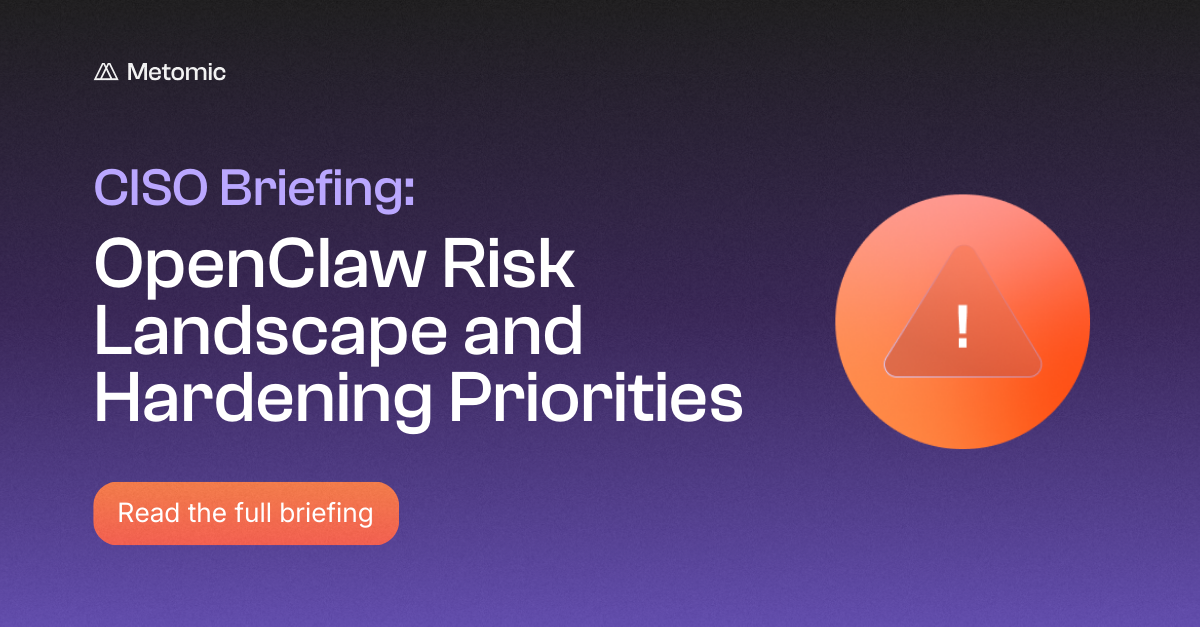Navigating the New Dangers of AI in Communication Tools Like Slack
Let’s delve into AI integration, addressing a pressing issue: the ethical implications of data privacy, particularly in how Slack manages your information for AI training purposes.

Navigating the New Dangers of AI in Communication Tools Like Slack
Let’s delve into AI integration, addressing a pressing issue: the ethical implications of data privacy, particularly in how Slack manages your information for AI training purposes.

Key points
- Default data usage in AI training lacks privacy safeguards, requiring opt-out, raising ethical concerns.
- In particular, Slack users must opt out of data usage for AI training, shifting burden and questioning accessibility and consent.
- Ethical concerns emerge over transparency and control of data usage, demanding greater clarity and accountability.
- Metomic can help by minimising the amount of data you hold onto, and by flagging sensitive data in SaaS applications like Slack.
AI has swiftly become an indispensable workplace tool, promising heightened efficiency and productivity. But new data security risks keep cropping up - the latest being that your Slack data is being used to train AI tools.
Necessity is the mother of all invention, and while collaboration tools like Microsoft Teams, Zoom and Slack were around before Covid-19, the pandemic certainly helped to accelerate the adoption of these tools, and the brave new world of remote work they helped to bring about.
Only a few short years after that, another technological marvel has reshaped the world of work - AI.
We’ve spoken about the impact that AI has already had and is continuing to have on the business world, and on the risks of interacting with it.
But what about the consequences of a collaborative tool such as Slack, using your data to train AI models, unless you proactively opt-out? This is a new risk that all security teams should be aware of when it comes to their third-party programs.
Examining the ethical conundrum: Opt-out data utilisation
Here's the thing: since the explosion of ChatGPT in the early part of 2023, we know that data is crucial for training AI models.
They rely on large datasets to learn and generate new content, with data being essential for their development. This data is often called the "fuel" or "lifeblood" of models , as high-quality data is crucial for effective learning and content generation.
Slack is no different, as it harnesses customer data to refine its AI algorithms. This isn’t necessarily a bad thing, as it undoubtedly enhances the platform’s functionality.
However, this practice prompts pertinent questions about data ownership and consent. And what’s particularly concerning is Slack's default stance. User data can be used for AI training — unless you explicitly opt out—a model that merits some scrutiny, given its implications for user privacy.
Reframing the discourse: Empowering users through transparency and control
Slack has provided detailed guidance around this issue, but ultimately, the responsibility of any organisation’s data will lie with its security team. We've wrote about the security risks associated with Slack previously.
Who owns your data?
The answer is unequivocally—you. They’re your messages, your files, your information. So, consequently, shouldn't you, the user, have a greater say in how it’s used?
This means that while Slack has some responsibility towards data security while users are on the platform, it’s the security team of your organisation who will be in trouble if data is leaked or breached.
The imperative of ethical AI governance
How can companies like Slack navigate the complexities of AI integration?
By adopting a more user-centric approach to AI data utilisation—potentially through an opt-in mechanism—Slack could champion a paradigm shift towards responsible data governance.
This could be modelled on a framework like GDPR, where users have to opt in before their data can be used. This would foster transparency and accountability, which is paramount in building user trust, and cultivating a culture of ethical AI practice.
🔒How Metomic help secure your data in Slack
Fortunately, you don’t have to go it alone.
With Metomic, you can have peace of mind knowing your team is using a platform that keeps data safe, and minimises the amount of sensitive data your organisation holds on to.
As we continue to integrate AI into our daily lives at work, we mustn't lose sight of all the implications of that integration. A dialogue about privacy and ethics is essential.
After all, data is not just data - data is also sensitive company records, it’s financial information, it’s intellectual property.
And it could also just as easily be a phone number or email address you’ve shared in Slack that you don’t want an AI to have access to.
Ready to get visibility over your sensitive data in Slack, or wherever it might be in your organisation? Book a personalised demo or get in touch with our team to find out more.





.png)